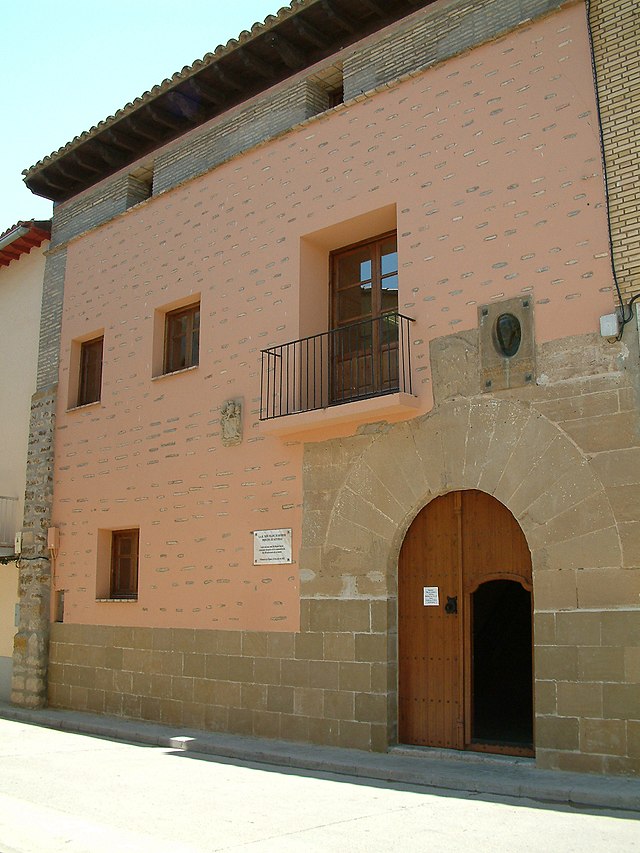Michael Servetus Facts For Kids
Michael Servetus was a 16th-century Spanish physician and theologian recognized for his pioneering contributions to medicine, particularly in the understanding of circulation, as well as his non-Trinitarian theological views, which ultimately led to his execution for heresy.
Set reading age
View for Kids
Easy to read and understand
View for Students
Clear, detailed explanations
View for Scholars
Deep dives and big ideas
Introduction
Michael Servetus was a brilliant scientist and doctor born in 1511 in Villanueva de Sigena, Spain 🇪🇸. He is best known for his work on the human circulatory system and for being one of the first people to discover how blood circulates in the body. Servetus didn't just study medicine; he also had strong ideas about religion. He wanted to understand more about God's nature and believed that everyone should think for themselves about faith. His life was filled with big questions, debates, and even challenges because of his beliefs. 🔍💖
Gallery of Michael Servetus Facts For Kids
Modern Relevance
Today, Michael Servetus is often studied in schools to understand the importance of questioning and thinking critically, especially about religion and science. 🎓👨⚕️ His life teaches us about the importance of freedom of belief and the courage to stand up for what we think is right. People still debate ideas about faith and science, showing that his legacy is still alive and important! 🗣️💡 Educating ourselves and respecting others' views is just as important now as it was back in the 16th century. 🌍❤️
Theological Beliefs
Servetus had strong beliefs about God, which were different from many other people during his time. He didn’t believe in the Holy Trinity that says God has three parts: the Father, the Son, and the Holy Spirit. 🕊️ Instead, he thought God was one and wanted everyone to question and explore their faith. He wanted to know about God’s true nature! Servetus’ ideas made him very brave because they went against the traditional beliefs of the church. He believed everyone should think for themselves, which is a big part of being thoughtful today. 💭❤️
Trial And Execution
Sadly, Servetus' trial ended tragically. In October 1553, he was found guilty of heresy and sentenced to death. ⚖️🔥 He was burned at the stake on October 27, 1553, which made many people very sad. Some thought it was unfair that someone could be punished for their beliefs. This event sparked a lot of discussion about freedom of thought and religion. Michael Servetus may have faced a tragic end, but his ideas lived on and inspired many other thinkers! 🕊️💔
Legacy And Influence
Even after his death, Michael Servetus’ ideas continued to influence many people. 🌟Today, he is remembered as a hero for freedom of thought and for being brave enough to share his beliefs. His medical discoveries are also acknowledged, and some scientists consider him one of the early pioneers in studying blood circulation. 🩸Many of his religious ideas helped shape new branches of thought and churches that encouraged independent thinking. So, Michael Servetus is remembered both as a scientist and a thinker who dared to be different! 🕊️💖
Early Life And Education
Servetus grew up in Spain and was very curious as a child. He studied law and theology at the University of Zaragoza, where he learned a lot about different religious ideas. 🎓However, he was also fascinated by science and medicine! Servetus traveled across Europe, meeting many famous people and learning from them. He loved to read books about science and nature. One of his most important mentors was the great scholar Giovanni Calvin, but their friendship didn’t last! This thirst for knowledge made him a special thinker of his time. 📚🌍
Contributions To Medicine
Michael Servetus made amazing contributions to medicine. In his book “The Restoration of Christianity,” he explained how blood circulates in our bodies. ❤️💉 He discovered that blood travels from the heart to the lungs and back to the heart again. This was a big deal because many doctors before him didn't know this! He also talked about how lungs help us breathe better. Servetus believed in looking at the world scientifically, which makes him a pioneer or a trailblazer in the medical field! His ideas helped people understand how our bodies work. 🩺🔬
Impact On The Reformation
Michael Servetus played an important role in the Reformation, which was a time when many people began to question the church and its teachings in Europe. 🏰✨ His ideas about faith and medicine opened the door for others to think differently. Servetus helped people see that it was okay to ask questions about God and the world. His bravery in standing up for what he believed in encouraged others to do the same, and that helped to spread new ideas about freedom and the right to think for oneself. 🗣️👥
Conflict With Religious Authorities
Because of his unique ideas, Servetus often clashed with religious leaders. They didn’t like that he was questioning their beliefs and teaching new ideas. ⚔️ In 1553, he was captured in Geneva, Switzerland, where he faced many challenges. The famous religious leader John Calvin was among those who found his writings dangerous. As a result, Servetus was put on trial for heresy, which means disagreeing with the accepted religious beliefs. This led to a stormy debate about faith, freedom, and truth! 🚨✝️
Michael Servetus Facts For Kids Quiz


Make things. Learn new skills. Share safely.
DIY is a creative community where kids draw, build, explore ideas, and share.
No credit card required

